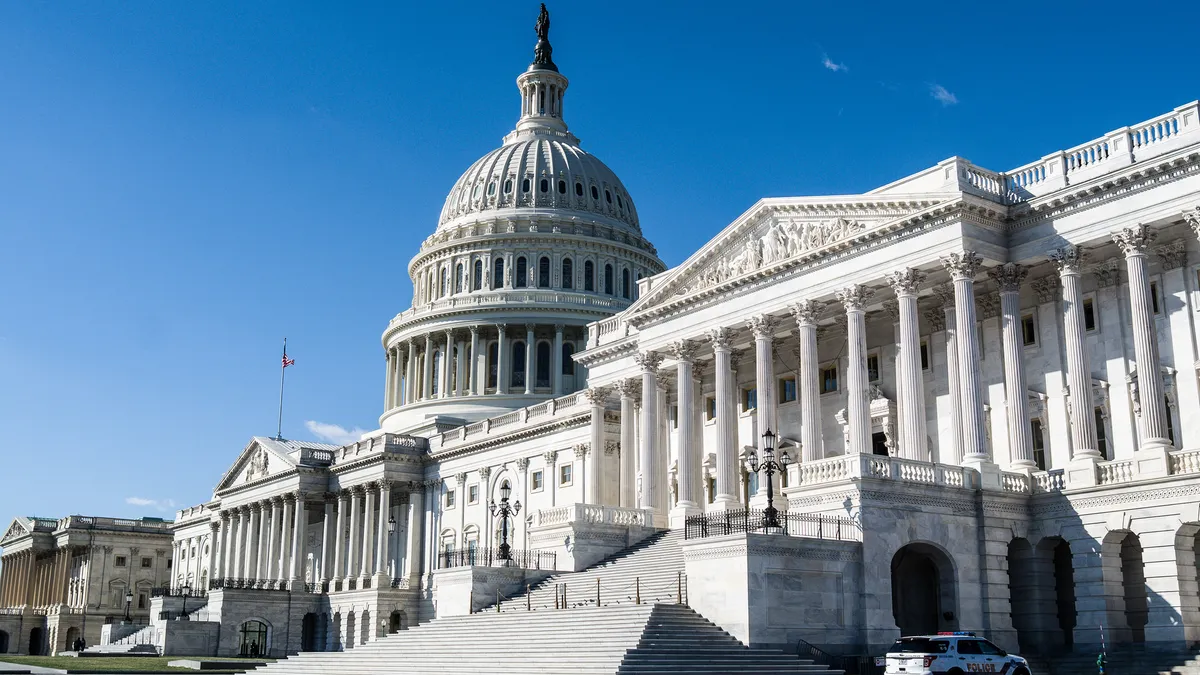Dive Brief:
- The House of Representatives passed last week, mostly along party lines, a bill that would prohibit the U.S. from exiting the Paris Climate Agreement.
- Three Republican House members joined Democrats to pass HR 9 by a 231-190 margin. Meanwhile, climate action advocates have noted that Republicans are increasingly calling for measures to address the challenge through private sector innovation, as opposed to carbon taxes, mandates or sweeping Green New Deal-style policies.
- The bill is not expected to move in the Senate and would be subject to a presidential veto anyway, making it largely symbolic, though still important as the first piece of major climate-only legislation passed by the House in almost a decade.
Dive Insight:
Senate Majority Leader Mitch McConnell, R-Ky., last week called the Paris Climate Agreement a "futile gesture to handcuff the U.S. economy through the ill-fated Paris deal [that] will go nowhere ... in the Senate." But Republicans have shown increasing support for policies enabling the economic growth spurred by the clean energy sector while rejecting broader climate initiatives.
For example, Rep. David McKinley, R-W. Va., is sponsoring bipartisan legislation to advance a home energy savings rebate program. However, he joined other conservatives to criticize HR 9 on the House floor, alleging as the GOP leadership did, that the agreement would put an outsized burden on the U.S
Top House Energy and Commerce Committee Republicans have defined a GOP climate change agenda as confronting severe weather changes through innovation that would lead to decarbonization while providing few policy details, according to the Washington Examiner. Reps. Greg Walden, R-Ore., and John Shimkus, R-Ill., have also touted the emission savings from the transition to cheaper, cleaner-burning natural gas.
The Senate held a symbolic vote in March to reject the House's Green New Deal policy package. However, Republicans and Democrats are both pursuing incentives and funding for carbon capture infrastructure and other carbon-mitigation technologies.
Republican leadership of the Senate Environmental and Natural Resources Committee has increasingly supported policies that would support cleaner power sector emissions. Sen. Jim Inhofe, R-Okla., who famously threw a snowball on the Senate floor in February 2015 to assert that global warming is a hoax, supported a carbon capture bill for its potential to help coal plants meet future stricter emissions standards.
There are a growing number of senators that are willing to talk about climate change, according to Lisa Jacobson, president of the Business Council for Sustainable Energy (BCSE). BCSE members have joined many other companies in supporting U.S. participation in the Paris deal.
The "Paris [Accord] is a really important international agreement but ... it's not necessarily the driver of support for all policy in this current environment," Jacobson said.
"Irrespective of Paris, there's a lot of conversation on what the federal government can do now to reach decarbonization goals," she said, adding that some more conservative legislators are considering applied research at the Department of Energy and other federal technology-based initiatives versus national carbon reduction mandates.















